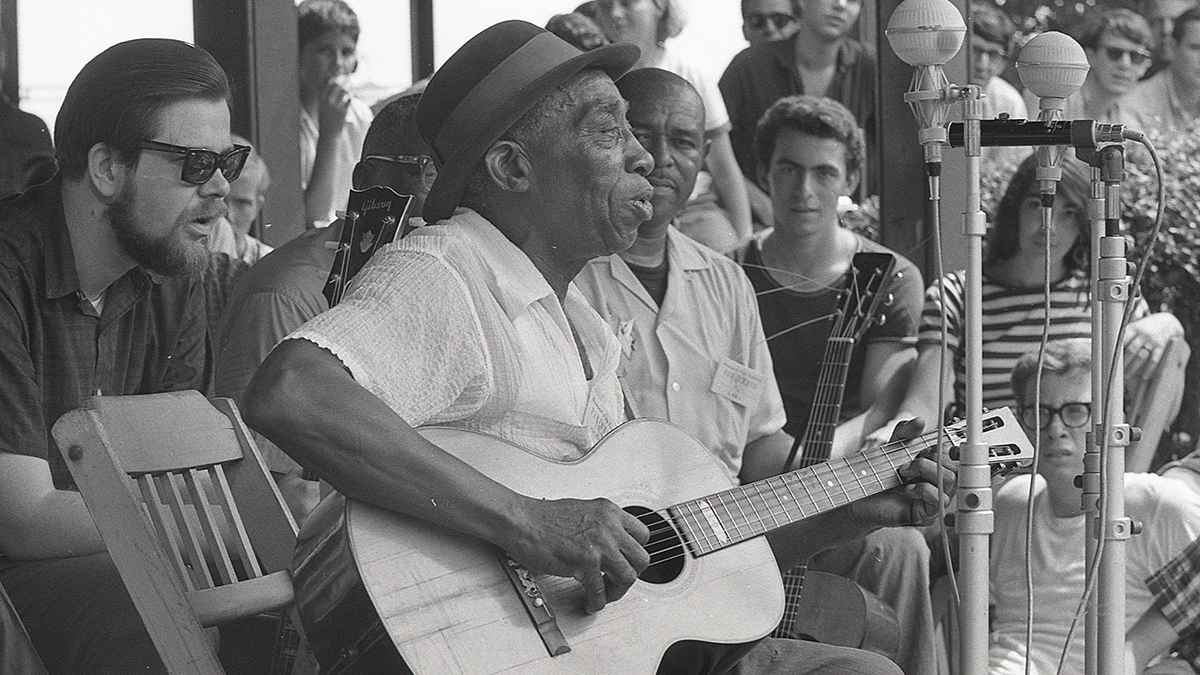“The curator called me with tears in his voice – it’s a devastating mess”: Museum honoring legendary blues trailblazer Mississippi John Hurt destroyed in fire
Guitars and some of the last tangible memories of the revered bluesman have been lost in the fire, which has reduced the guitarist’s former home to ash

A museum honoring the legacy of legendary blues pioneer Mississippi John Hurt has been destroyed in a fire.
Situated in the 200-year-old wooden shack that was once Hurt’s home, the museum was full of memorabilia and memories of his heartfelt work, all of which have sadly now been “reduced to ash”.
Guitars and rare photos are among the items lost in the blaze, which happened on Wednesday, February 27.
“I talked to the curator,” the guitarist’s granddaughter, Mary Frances Hurt, told NPR’s Neda Ulaby. “He called me with tears in his voice. He said that it’s a mess. It’s a devastating mess.”
A statement from the Carroll County Sheriff's Office explained how an electrical technician had been called to the site, where he found the tin-roofed building ablaze.
The police do not suspect foul play, however, Mary Frances Hurt isn’t ruling out arson as a possible cause of the fire.
The museum was located on an unmarked dirt road. It was manned by a local caretaker and run by the Mississippi John Hurt Foundation, which is led by the late trailblazer's granddaughter. The foundation has described the home-turned-museum as a “humble three-room shack befitting of a gentle farm hand with an amazing affinity for the guitar”.
All the latest guitar news, interviews, lessons, reviews, deals and more, direct to your inbox!
Sadly, now an old church, located nearby, stands as the only material remnant of the area’s history as an all-Black town. It’s a town Hurt immortalized in Avalon Blues, recorded nearly a century ago, in 1928.
A GoFundMe has been set up to raise money towards restoring the museum.
Born John Smith Hurt in 1893, the guitarist and songwriter first began recording his personal and reflective music in the '20s. Widespread recognition, however, didn't occur until the American folk revival in the '60s, the same decade in which he passed.
During his life, he performed at colleges, coffeehouses, and, most vitally, at the Newport Folk Festival in 1963. He put out several 78rpm releases in the late '20s, traveling to New York to do so. It wasn’t until his showcase at the Newport Folk Festival, however, that his playing was given a wider platform.
His style of playing was defined by his self-taught and syncopated approach to fingerpicking. That DIY mentality saw, according to David Brown, writing for Smithsonian magazine in 2022, Hurt diverge away from many of the Delta blues traditions of the region. Instead, he wrote music that was “melodically complex, haunting and often discordant”.
Writing about the bluesman for Guitar World in 2012, rapper and musician G. Love said: “When I think about Mississippi John Hurt, I think of adjectives like gentle, soft-spoken, soothing, sly, charming and personable. He is indeed a very likeable character. He is one of those rare musicians who you feel like you really know. His songs are so personal and his delivery is nothing but inviting.
“Hurt's fingerpicking is about the best fingerpicking you can find, he continues. “All of his songs are in that picking style with the thumb droning on the bass note and his fingers plucking melodies that echo or respond to his lyrics.
“His rhythm is steady and rolling, never in a rush, never too slow, always just right. His vocals are a melodic rap and he is almost singing through his songs in a talking voice.
“He never raises his voice, no yelling or hooting, just steady and mellow with an entrancing lilt. He sings of love, home, gunfights, John Henry, and coffee.”
Following his death, several compilation and tribute albums have been released to continue his legacy, including Bill Morrissey's '99 release, Songs of Mississippi John Hurt, which was nominated for a Grammy.
A freelance writer with a penchant for music that gets weird, Phil is a regular contributor to Prog, Guitar World, and Total Guitar magazines and is especially keen on shining a light on unknown artists. Outside of the journalism realm, you can find him writing angular riffs in progressive metal band, Prognosis, in which he slings an 8-string Strandberg Boden Original, churning that low string through a variety of tunings. He's also a published author and is currently penning his debut novel which chucks fantasy, mythology and humanity into a great big melting pot.

